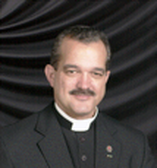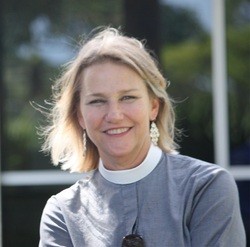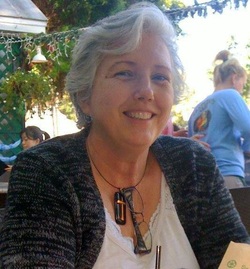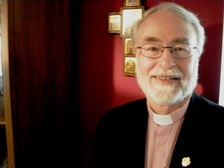 Bible Challenge
Isaiah 19-21; Psalm 32; I Timothy 1
Have you ever been so lost that you thought you’d never find your way back to your place of origin? I have! It was very frightening… I prayed. I cried. I made promises to God that if He would return me safely home, I’d forever be…? in His debt… Or, something like that…
Yuck… These chapters of Isaiah are really depressing… They remind me of my times of being geographically lost; totally not knowing which direction was the right way in which to go… No map. No compass. No GPS. Nor was there given a clear path from the Lord to aide my journey. Perhaps the Israelites had similar feelings of lost-ness during their own physical exile. No one likes to feel that way…
Home. It is a very hospitable word for those who have, or had, a loving home environment. It’s a place of love, refreshment, comfort, providing a nurturing supply of purpose for growing into who God is calling us to be. It is to mirror the home God offers to us filled with Love, Purpose, Expression and the Joy for Life. Contrary, when home is a place of oppression, cruelty and even exile those who are products of such environments loose their sense of respect, potential and love. So, I need ask, “Which kind of home is our Church to be? Which is it today?”
I think we Episcopols lean more in the direction of the later understanding of home. Sorry. Please take an honest look at the Episcopal Church today. We are painfully divided on many levels. We are shrinking in membership and not giving folks the spiritual food which substantially feeds them in Body, Mind and Spirit. So, they do not come into our fold. Many of our present and past brothers and sisters are angry and leave our parishes with feelings of rejection. We who chose to stay allow them to depart. My friends, these are real members of our own Body! They are casualties of our internal bloody conflicts. My heart is sad for the sense of lost-ness of our beloved Episcopal Church… I pray everyday for Her unity and faithful proclamation of Jesus’ gospel.
Many of our parishes and dioceses seek the most popular church renewal campaigns, catchy phrases, programs, Madison Avenue adds, the latest computer technology and theatre productions to make Jesus relevant to our communities. Is God smiling? Or is He crying? What are we to do? How are we to be most faithful to the Household of God we name the Episcopal Church?
Please stop your reading. Turn to the 32 Psalm. Slowly, prayerfully reflect upon this passage……… Please repeat the process one more time… Thank you.
It’s the Lord! It is Jesus in whom we are to focus all of our desires. It is in a relationship of deep passion with Him that we are to give our Hearts. It is from our Hearts of compassion, individually surrendered, that Love will move us to Repentance and so Forgiveness of our selves and one another… When we are most True of Heart will we be enabled by Grace to make our heart a welcoming home and our lives bridges to the Kingdom of God, through the Love of Jesus.
I humbly suggest that we stop believing in our Church and that Jesus is our Head. Rather, we must, must start experiencing Christ, through our personal relationship with Him, as the source of all Goodness and Purpose. Until we experience the Lord of Life we will continue to divide our Home with what we believe is… our “right” understanding. No other way will we liberate ourselves from the sin of Pride and so make our Church a Home that truly “Welcome You”.
Please place your self in Timothy’s sandals upon reading today’s assigned chapter from Paul. How would you respond? Where do you find Grace?
In His Love and Joy,
The Reverend Bernard J. Pecaro,
St. Martin, Pompano Beach
 Patsy McGregor
BLOGG
Isaiah 16-18, Psalm 31, 11 Thessalonians 3
With 87 denominations of the island of Mauritius, religion plays a major part in the island’s cultural activities. Numerous churches, mosques, pagodas and temples exist, sometimes within very close proximity to each other. Yesterday I took a visiting priest from the Diocese of Canterbury to see the statue of Shiva, a sacred place of pilgrimage for hundreds of thousands of Hindus who come to pray to their deity Shiva, which has become the largest Hindu festival outside India. Inaugurated in 2007, the Shiva statue in Mauritius is 108 feet tall, making it the world’s third largest Shiva statue.
As I think about my Christian faith, I am so thankful I don’t need to pray to a statue. Today’s readings in Isaiah remind us of the futility of praying to idols and Asherah poles. “There will be a day when men will look to their Maker and turn their eyes to the Holy One of Israel. They will not look to the altars, the work of their hands, and they will have no regard for the Asherah poles and the incense altars their fingers have made.” (Is. 17:7,8) One day the Lord will ride on a swift cloud and idols will tremble before him. (Is. 19:1)
As we live our lives in a multicultural society, let us be faithful messengers of Christ, spreading the Good News of the coming King, proclaiming a victorious life through the Living God.
 Isaiah 13-15 Psalm 30 II Thessalonians 2
“Wail, for the day of the Lord is near;
it will come like destruction from the Almighty!
Therefore all hands will be feeble,
and every human heart will fail,
and they will be dismayed.
Pangs and agony will seize them;
they will be in anguish like a woman in labour.
They will look aghast at one another;
their faces will be aflame.”
And this is supposed to be GOOD news?
Today’s readings are a not very subtle reminder that God’s vision for us in this world does not always neatly mesh with our own. Whether it is the total annihilation of Babylon (which happened to be home to most of the Jewish Diaspora), the unexpected healing from a grave illness, or the appearance of Satan, the ‘lawless man’, and wicked deception as a pre-amble to the return of Jesus Christ, these don’t neatly fit in with modern conceptions of Peace and Justice.
Given all this news, Paul’s concluding words at the end of Chapter two are particularly difficult to swallow: “ Now may our Lord Jesus Christ himself and God our Father, who loved us and through grace gave us eternal comfort and good hope, comfort your hearts and strengthen them in every good work and word.”
Oh really? THIS is how God shows love for us?
You see, we aren’t used to this kind of love. We prefer storybook love, or friendly love, and even that distant, I call you when I need something kind of love that is so prevalent these days than the kind of Godly Love presented in today’s readings:
- I mean, what is more destruction going to accomplish in Babylon? Or in Israel/Palestine? Or in Iraq or Afghanistan?
- Why did the psalmist suffer at all? And what made his healing acceptable? What about the friend with cancer? The family member with a heart condition? Or the loved one struggling with addiction? Where is there healing?
- Why do we need rebellion and lawlessness to precede the second coming? Why can’t we have peace now? And does this mean I should be OKAY with the poverty, crime and strife I find in my own community? If it is part of the “path to righteousness”?
But God’s Love is so much different, and so much better than that. God’s love finds health in the sickness. It finds renewal in the pain. In finds peace in the violence.
And this is what we are called to do. To go out into our own world. Into our lives, everyday and be an almost ironic witness of the Gospel. To be an unexpected reality to those around us.
Stop and talk to the homeless person on the street. Venture into the bad neighborhood to provide some healing. Call the friend that no one talks to anymore. Do ‘violence’ to the assumptions of those around you as to how the world SHOULD be. Show them it doesn’t HAVE to be that way.
Today, attempt to venture out into this very peculiar world we inhabit and make it a little bit better. The Rev. Grey Maggiano
 Reflection Day 218
Isaiah 7-9; Psalm 28; 1 Thessalonians 5
The times are dangerous. Social and political upheaval is growing more ominous. An attack is imminent. The future appears to be anything but bright.
In the face of this potential disaster, the prophet Isaiah delivers a
surprising message from the Lord: “Take heed, be quiet, do not fear, and do not let your heart be faint” (Isaiah 7:4).
The chorus from the scoffers must be deafening. God insists on giving a sign. A young woman, most likely a virgin, shall bear a child, a son, and He is to be named “Immanuel,”God-With-Us (Isaiah 7:14). Although all seems dark, we will see a great light; for the son shall be
known as “Wonderful Counselor, Mighty God, Everlasting Father, Prince of Peace”
(Isaiah 9:2,6). Moreover, He shall bring“endless peace … with justice and with
righteousness from this time onward and forevermore” (Isaiah 9:7).
No, we need not fear. We need only trust in God, who is our “strength,” our “shield,” our very
“saving refuge” (see Psalm 28:7-8); “[f]or God has destined us … for obtaining salvation” (1
Thessalonians 5:9). We are to be sanctified by “the God of peace,” who is “faithful” (1
Thessalonians 5:23-24). So trust in the Lord and banish fear.
We are to“[r]ejoice always, pray[ing] without ceasing,” and
giving “thanks in all circumstances” (1 Thessalonians 5:16-18).
The Rev. Mark Andrew Jones
 Day 216 or August 10, 2013
Isaiah 4-6, Psalm 27, 1 Thessalonians 4
Feels like we’re still in Song of Songs with the beginning of Isaiah 5, eh? “Let me sing for my beloved my love-song concerning his vineyard: My beloved had a vineyard on a very fertile hill.” Don’t you just love that? Say it slowly and melodically, “My beloved had a vineyard on a very fertile hill.” For me, this is one of the most beautiful lines in scripture. This fertile hill continues to call us home… continues to call us from within to the love of God… to the love of one another. And it called to the prophet Isaiah some twenty-seven hundred years ago. It’s thought by scholars that Isaiah may have been a priest most specifically because of Chapter 6: “Then I heard the voice of the Lord saying, ‘Whom shall I send and who will go for us?’ And I said, ‘Here am I; send me!’” Here am I. Send me.
I remember in the first few moments when I knew I had a call to the priesthood and dared to speak the call to my rector. In his wisdom, he asked me, “Would you be willing?” It’s a question I must answer over and over, a recommitment each morning, a recommitment each night. In the Anglican tradition, we proclaim the ‘priesthood of all believers’. Are you willing to say with Isaiah, “Here am I. Send me.”? If so, then you know the power of a psalm like Psalm 27 to help you stay steadfast even if spoken with trembling lips: “The Lord is my light and my salvation…” “Be strong and let your heart take courage; wait for the Lord!” If so, then you can rely on those who have gone before us like Paul and you can lean on guidance like we read in 1Thes 4 today.
Our beloved Lord still calls to us and always will… calls when we’re strong, when we’re weak, when we doubt, and when we joyfully sing with hope and light. Thanks be to God.
With you in Christ,
Wendy Tobias
 Reflection Day 214
Song of Songs 7-8; Psalm 25; I Thessalonians 2
The Song of Songs comes to a resounding finale as the woman seems to send her lover away and call him to her at the same time. In this passage divine love is interpreted as forever in progress with the coming and going of passion and desire.
The psalmist also struggles with the coming and going of divine love pleading for mercy, “…do not let me be put to shame; do not let my enemies exult over me;” asking forgiveness, “…pardon my guilt, for it is great;” and finally
awaiting redemption, “O guard my life, and deliver me…Redeem Israel , O God, out of all its troubles.”
Paul’s words to the Thessalonians shine a bright light on divine love and its
need for continual care as our perception of it ebbs and flows as we proceed
through our life’s journey. His words of encouragement and exhortation to the
members of his community in Thessoloniki portray the difficult journey of a
disciple in holding onto divine love: “…but though we had already suffered and
been shamefully mistreated in Phillipi, as you know we had courage in our God in
spite of great opposition.”
Our perception of divine love ebbs and flows. Sometimes, indeed not
infrequently, it is impossible to us to see or feel this love – God’s love. Yet,
as human beings, our hearts and souls are naturally inclined to love and to be
loved – by God and by others. Thomas Merton put it nicely…
“My Lord God, I have no idea where I am going. I do not see the road ahead of
me. I cannot know for certain where it will end. Nor do I really know myself,
and the fact that I think that I am following your will does not mean that I am
actually doing so. But I believe that the desire to please you does in fact
please you. And I hope I have that desire in all that I am doing. I hope that I
will never do anything apart from that desire. And I know that if I do this you
will lead me by the right road though I may know nothing about it. Therefore
will I trust you always though I may seem to be lost and in the shadow of death.
I will not fear, for you are ever with me, and you will never leave me to face
my perils alone.”
― Thomas Merton, Thoughts in Solitude
As the psalmist in Psalm 25 sings out, “To you of Lord, I lift up my soul. O
my God, in you I trust.”
The Rev. Deacon Clelia P. Garrity, LCSW; St. Paul’s Episcopal Church,
Delray Beach
 1 Thessalonians 1: Today we begin a short romp through 1 & 2
Thessalonians, what are believed to be the earliest writings in the New
Testament, written only 20 years after the Ascension of Jesus.
Paul and Silas (called “Silvanus” in 1 Thessalonians – it’s just the Greek
version of the Roman name) come to Philippi, and heal the possessed woman Lydia, and as a ‘reward’ they are beaten, unjustly tried, stripped, flogged, and thrown into prison, because Lydia’s masters could no longer make money off of her fortune telling ability. After an earthquake breaks open the prison doors, and Paul and Silas do not run off, the officials tell them to leave Philippi. They travel about 100 miles to the east, arriving with Timothy in Thessalonica, a port city in northern Greece. The Jews in Thessalonica become jealous because of Paul’s success in converting non-Jews. As a
result, the Jews stirred up a mob against them and forced them to leave the
city. Paul then met more opposition at Beroea and escaped alone to
Athens. His preaching at Athens failed to produce any results. Silas
and Timothy joined Paul at Athens. For some unknown reason (mentioned in
tomorrow’s reading from 1 Thessalonians 2), Paul was unable to return to
Thessalonica. So, Paul sent Timothy there, and Paul moved on to
Corinth. When Timothy rejoins Paul at Corinth and reports about
Thessalonica, Paul then writes this letter to the Thessalonians.
If Paul and the others had not encountered the opposition at Philippi,
perhaps they would have never spent the quality time with the
Thessalonians. Why is this important? Thessalonica is a cosmopolitan
city that was important as a gateway city -- the travel hub to both Europe and
to Asia. The opportunities for the spread of the Gospel from Thessalonica
were tremendous because of this. And the two letters to the Thessalonians
give evidence that a strong Christian community had developed that would enable
the Good News to be spread. As Paul writes in verse 7, “You have become
examples to all the believers in Macedonia and Achaia.” There is an obvious
strong bond that Paul developed with the Thessalonians, as he calls them
“brothers” twenty-one times in the short eight chapters, a higher proportion
that in any other letter.
If they had not encountered persecution at Philippi, the Gospel would not
have spread as it did. The trials they encountered had purpose. Not
only did it enable them to spiritually form the new Christians in Thessalonica
such that they too would be strong in the face of their own persecution, but it
also enabled the Gospel to be spread far and wide into Europe and Asia.
Psalm 24 - How often do I mope about my small trials and tribulations.
Things don’t go my way, people are unkind, life is unfair. When I reflect
on Paul’s continued pilgrimage, I am reminded that when something isn’t working
right, it’s just part of the plan for something better to emerge. At the
end of a really bad day, I can start to get excited, because God must be getting
ready to do something incredible. God must be getting ready to send me to
my own metaphorical Thessalonica. The hope and promise of today’s Psalm 24
can be ours: They will receive blessing from the Lord, and vindication
from the God of their salvation. (Psalm 24:5)
Song of Solomon: Sometimes we have to just enjoy the poetry and let it
be, as it loses something in the translation. For me, the best learning
from the Song of Solomon is that even God smiles when romance is in the
air. (And perhaps there should be an asterisk with a footnote to Song of
Solomon that says, “Don’t try this at home”:
I told my love that her hair was like a flock of goats,
and she neighed at me her disapproval vote.
So I told her that her teeth were like a flock of shorn ewes,
But her disdainful “baah” revealed she was on a short fuse.
When I told her that her cheeks were like halves of a pomegranate,
She looked at me like I was an alien from another planet.
So I told her that her neck, like David’s tower, is fine
I had to duck quick as she tried to break mine.
I didn’t dare take the metaphor any lower on her frame,
For fear that my own might soon end up feeling lame.)
Marty Zlatic
 Song of Songs 1-3, Psalm 23, Colossians 4
As you read the 212th day’s readings in the Bible you are probably getting used to this daily routine. You may have found, like many before you, that starting the day with scripture is a good way to both keep your commitment and to keep the words and works of God in your mind as you go about your day’s labors. However, today I’m going to ask you to reconsider this, at least for the next two days.
Today we begin reading the 8-chapter book the Song of Solomon, or the Song of Songs. (As the note in the New Oxford Annotated Bible says of the title, this is a superlative, “the best song” like the “king of kings.”) This book might work better with a glass of wine at the end of the day then with a cup of coffee in the morning. Listen again to the second verse, “Let him kiss me with the kisses of his mouth!” These songs are songs of love. Over the next two days, we’ll be hearing the lovers one a black-skinned maiden, and the other a ruddy shepherd. (You’ll remember that is the same complexion of King David.) If you read slowly, if you take the time, then they will remind you of what it is to long for a lover; to search for a lover; to risk everything for love.
Some of the imagery might make you laugh or shake your head in disbelief as they describe each other. “Your teeth are like a flock of shorn ewes that have come up from the washing, all of which bear twins, and not one among them is bereaved.”4:2 She has good white teeth and none are missing. In an age before dentistry, it is more striking perhaps than today.
You will hear wisdom, “I adjure you, O daughters of Jerusalem, by the gazelles or the wild does: do not stir up or awaken love until it is ready!”3:5 “Many waters cannot quench love, neither can floods drown it.”8:7
But remember this is poetry – originally meant to be sung. Before it was officially made part of the Hebrew Bible it was sung at weddings. Later, it was read to reflect God’s love for his people and then for Christ’s love for the church. It is sung today as part of the Passover liturgy.
No matter how you interpret it, my advice is to slow down. It is one thing to skim a long list of people or things. It is another to miss the longing, desire, and struggle that love provokes in us all. Take the time.
 Ecclesiastes 10-12, Psalm 22, Colossians 3
A Reflection on Ecclesiastes
If you enjoy humor and truisms like the following, you have thoroughly enjoyed your journey through the Philosopher’s Ecclesiastes. It’s almost as if many of these truisms were written by Mark Twain or Will Rogers.
“Trying to be happy by accumulating passions
Is like trying to satisfy hunger by
Taping sandwiches all over your body.” George Carlin
“Since light travels faster than sound, some people appear bright until you hear them speak.”
“Behind every successful man is his woman. Behind the fall of a successful man is usually another woman.”
“You do not need a parachute to skydive. You only need a parachute to skydive twice.”
Ecclesiastes 10-12 is filled with witty but humorous truisms which are multiple mirrors in which we see the fragility and uncertainty of our human existence. “Dead flies can make a whole bottle of perfume stink, and a little stupidity can cancel out the greatest of wisdom” (12:1) Who among us has not said or done something stupid after a shining display of wisdom? These are humorous statements but ones filled to the brim with human experiences. Ecclesiastes is a place to laugh at oneself as the mirror of life shines forth the essence of our frail character back upon us.
“Knowing how to charm a snake is of no use if you let the snake bite first.” (12:11) One important life skill is knowing how to successfully maneuver around those individuals or situations that threaten to do you harm. Most of us learn this skill by experiencing pain and finding ways to avoid similar painful experiences in the future. One not only has to learn how to be charming but cunning as well. First deal with the potential threat and then learn how to avoid it in the future.
There are other significant words of wisdom filled humor:
“Do what you want to do, and follow your heart’s desire. But remember that God is going to judge you for whatever you do” (1!:9) or “Be grateful for every year you live. No matter how long you live, remember that you will be dead much long” (11:8) or “There is no end to the writing of books, and too much study will wear you out” (12:12).
But there is also great wisdom and faith to be found in some truisms woven into the tapestry of the “Philosopher’s” tale, truisms that challenge our faith beyond our mental comprehension:
“God made everything, and you can no more understand what he does that you understand how new life begins in the womb of a pregnant woman.” (11:5) Yes, God’s ways are so often a great mystery for us and yet we are challenged to strive for greater and greater understanding of God’s heart.
And finally, the next to the last verse seems to sum up what the Philosopher is trying to pass on the succeeding generations. “After all this, there is only one thing to say: Have reverence for God, and obey his commandments, because this is all that man was created for.” (12:13) Actually, lots of truth here!
Well, good but it’s not quite that simple. The Philosopher has a branch of truth but not the whole tree. Yes, we were made from him and are compelled to return to him. But along that faith journey everything is not quite as simple as having “reverence” for God or “obeying” his commandments. There is often confusion over what “reverence” and “obey” mean as they are lived out through the complexities of life. Guess that’s why we call it faith so often!
 Bible Challenge
Day 209
Ecclesiastes 7-9 Ecclesiastes, along with the Book of Proverbs and the Book of Job, are examples of wisdom literature, a genre characteristic of several mid-Eastern cultures in the 5th-2nd Centuries B.C. In tone and subject matter they differ greatly from the other writings of the Old Testament, with nary a reference to the Covenant, salvation history, and even references to the Lord are rare. Many believe that Ecclesiastes only made it into the canon of Hebrew Scripture because of the traditional belief that it had been written by King Solomon. However, in all likelihood Ecclesiastes was written six or more centuries after Solomon’s time.
While the central question in Job might have been, “Why do bad things happen to good people?”, in Ecclesiastes the central question seems to be, “What is the point of life?” Ecclesiastes is, on the whole, very pessimistic. At times the book even seems cynical, but its cynicism is tempered by the repeated assertion that life, pointless (“vain”) though it may be, is still worth living.
The opening verses in today’s section sound a particularly depressing note. However, the assertion in verse 7:2 that “the day of death (is better) than the day of birth” must be seen in conjunction with verse one. One’s reputation (good name) is not really secured until after we’ve died. After all, we have the capacity to screw up at any time in our lives. (“There’s no fool like an old fool!”)
Psalm 21 This psalm seems more like two separate poems than one poem with two stanzas, since the themes of the first and second halves are so different. In the first seven verses the king’s (David’s?) success is described as being the result of the LORD’s might rather than resulting from any skill or power of the king’s himself. Verses 8-14 express the common wish for one’s enemies to be disgraced and defeated.
Colossians 2 Colossae was an insignificant town in Asia Minor (Turkey). Evidently, the young Church at Colossae had been infected with some definitely un-Christian teachings, resulting in a form of syncretism (a blending of various religious principles), a religiosity that was a blend of Christianity and some form of paganism (not unlike santería in Hialeah or voudou in Haiti). After a beautiful Christological hymn in chapter 1 that serves as a rather explicit proclamation of the Incarnation, chapter 2 attempts to apply the implications of this Incarnational Christology to individuals’ lives. The faithful of Colossae are admonished not to be swayed by empty philosophies, nor are they to feel obligated to observe all kinds of ritualistic regulations. Their life in Christ is to be based on love of neighbor, not ritualistic piety. The person of Christ and the teachings of Christ are all-sufficient, so don’t get caught up in other teachings. We might think that we Twenty-First Century Christians are more sophisticated and more mature in our faith than were those First Century Colossians. But we have to ask ourselves if we really do rely solely on Christ, his life, his death, his resurrection, and his teachings. Do we not also invest a lot of our hopes in concepts such as nation, patriotism, political party, military defense, social status, professional success, etc.? Placing all of our loyalty in Jesus Christ is not nearly as easy as we might have thought.
Frank J. Corbishley
The Episcopal Church Center at the University of Miami
|










 RSS Feed
RSS Feed